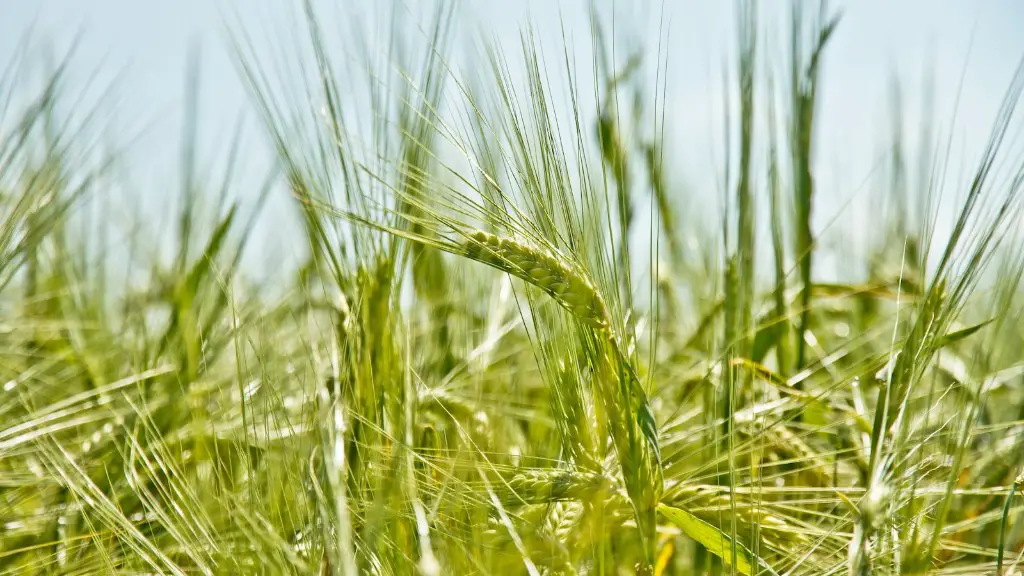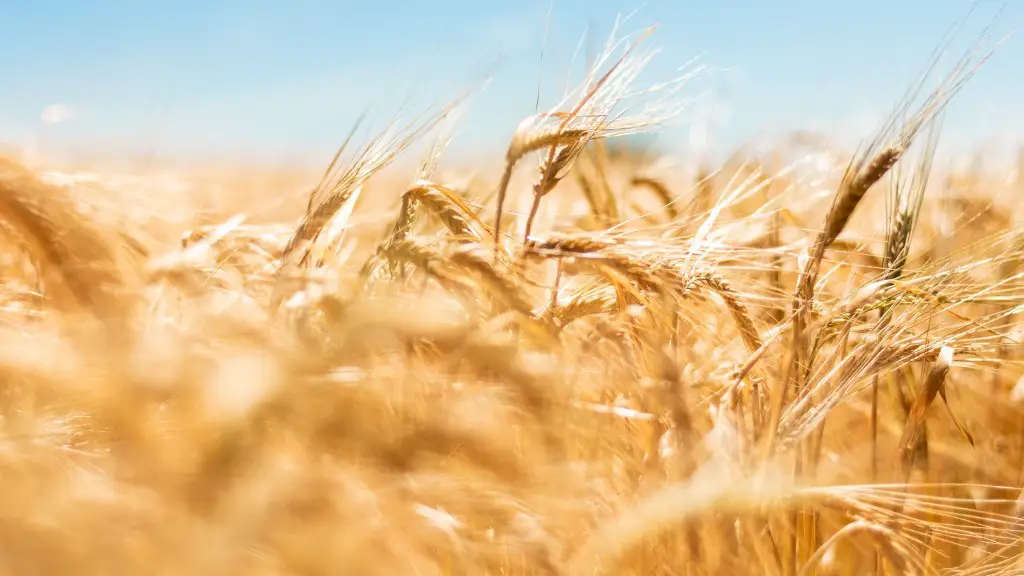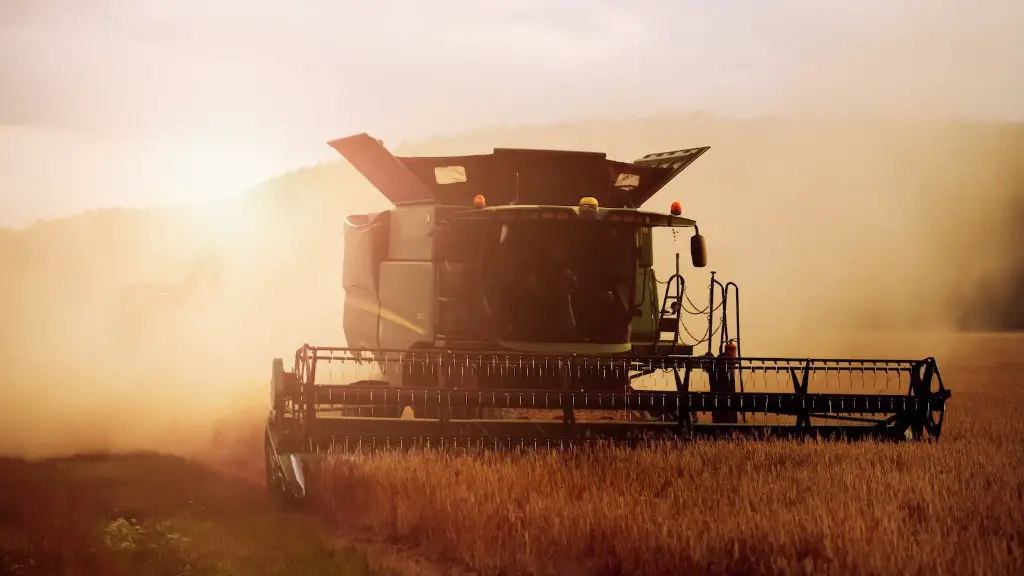The agriculture field is one of the most ancient and traditional industries in the world. It is also one of the most important, as it provides the food and fiber that we need to survive. While the industry has changed and evolved over time, the need for qualified workers has not. With the right skills and qualifications, landing a job in the agriculture field can be a great way to start or further your career. Here are a few tips on how to get a job in the agriculture field:
1. Start by researching the industry and different career paths within it. There are a variety of different options available, from working on a farm to being a research scientist. Consider what interests you and what skills you have that could be applicable.
2. Once you have a general idea of what you want to do, start networking. Get in touch with people you know who work in the agriculture industry or have connections to it. Attend Industry events and job fairs. The more contacts you make, the better your chances of finding a job.
3. When applying for jobs, be sure to emphasize your relevant skills and experience. Many of the skills you need to succeed in the agriculture industry are transferable from other industries, so don’t be
There is no one-size-fits-all answer to this question, as the best way to get a job in the agriculture field may vary depending on your qualifications and experience. However, some tips on how to get a job in agriculture field include networking with professionals in the industry, researching job openings, and creating a strong resume and cover letter. Additionally, considering internships and entry-level positions can also be a great way to get your foot in the door of the agriculture field.
How do I start a career in agriculture?
There are many reasons to consider graduate college or completing the courses in crop science or biology. One reason is that it can help you look for cooperative positions and work your way up to a manager position. Another reason is that, in high school, taking agriculture classes and gaining experience working with crops can give you a head start on your college career. And finally, graduating high school and choosing a college that suits your needs can set you up for success in the long term.
There are many different types of careers in agriculture, from working with the land and plants, to working with animals, to working with the business and economic side of the industry. Agricultural engineers work with the land, designing and developing systems and equipment to improve efficiency and productivity. Agricultural economists work with the business and economic side of agriculture, analyzing data and developing policy recommendations. Farm managers are responsible for the day-to-day operations of a farm, including crop and livestock production, financial management, and personnel management. Soil and plant scientists conduct research on soils and plants, developing new ways to improve crop yield and quality. Conservation planners work with farmers and ranchers to develop conservation plans that protect natural resources. Commercial horticulturalists grow and sell plants, flowers, and other horticultural products. Agricultural salespeople sell agricultural products and services.
Which job in agriculture has highest salary
There are a variety of high paying jobs in agriculture, from agricultural engineers to agronomists to veterinarians. Farm managers also have the potential to earn a good salary, as do agricultural sales representatives.
The Agricultural Career Pathway is a great way to get started in the agricultural industry. There are many different career paths you can take within the agricultural industry, and the Agricultural Career Pathway can help you figure out which one is right for you. There are seven different pathways you can choose from, each with its own unique set of skills and knowledge. Whether you want to work with animals, plants, or food products, there is a pathway for you. So take a look and see which one interests you the most. There is no better way to start your career in agriculture than with the Agricultural Career Pathway.
Can you make a living in agriculture?
Agriculture is a great opportunity to make an income, either on a large or small scale. There are also a lot of career options in agriculture. As the world keeps revolving, there are now different ways you can earn from agriculture without owning a farm or even physically being present on the farm.
The average agriculture salary in South Africa is quite high compared to other countries. Entry-level positions still offer a good salary, while experienced workers can earn a very good salary. This makes South Africa a great place to work in the agriculture industry.
Do agriculture jobs pay well?
The field of agriculture offers many job opportunities for youngsters. The best thing is that these agriculture jobs not only provide a good salary, but they also offer many other benefits to the employees. Some of these benefits include health insurance, retirement benefits, and paid time off.
Our research put New Jersey at no 1 on the list of best paying states for agriculture technicians. New York, California, and Alaska also ranked high on our list. New York Total Agriculture Technician Jobs: 399 Average Annual Salary: $61,762 Lowest 10 Percent Earn: $34,000 Highest 10 Percent Earn: $110,000
Is it hard to study agriculture
No, BSc Agriculture is not a tough course. It is a course that requires hard work and dedication, but it is not a tough course. The course is designed to give students a strong foundation in the basics of agriculture, and it is possible to complete the course without any major difficulties.
There are many career opportunities available in the field of agriculture. Agricultural extension, agricultural engineering, animal science, agricultural economics, crop science, soil science, forestry, and horticulture are just a few of the many options available. With so many options available, there is sure to be a career path that is a perfect fit for you.
How long does it take to study agriculture?
The module covers the following topics:
1. Introduction to Agricultural Economics
2. The Agricultural Economy
3. Agricultural Production
4. Farm Management
5. Agricultural Marketing
6. Agricultural Finance
7. Agricultural Policy
8. International Agriculture
9. Sustainable Agriculture
10. Agricultural Development
There are many different types of agricultural degrees available at the baccalaureate level. Some of the best agricultural degrees include agroecology, food systems, environmental sciences/studies, biological sciences, international development, animal science, nutrition & food sciences, and dietetics, nutrition, and food sciences. These degrees can lead to careers in a variety of different fields, such as farming, food production, environmental conservation, and food science.
What are 4 needed skills in agriculture
Agricultural workers are responsible for a wide variety of tasks on the farm, from planting and harvesting crops to operating farm machinery. They need to have a strong work ethic and be able to work long hours in sometimes challenging conditions. They also need to have excellent hand-eye coordination to harvest crops and operate farm machinery. In addition, agricultural workers need to be good listeners and have the ability to work well with others. They also need to have physical stamina and strength and be mechanically inclined.
The table above outlines the fastest growing careers in the agriculture, food, and natural resources sector. Agricultural equipment operators are projected to experience the highest growth rate, followed by pest control workers and refuse and recyclable collectors. Animal caretakers are also expected to experience significant growth.
What is a degree in agriculture called?
A degree in agricultural science can open up a number of career paths in the food, farming and animal husbandry industries. With an agricultural science degree, you can work in research, development, management or marketing for companies that produce food, farm equipment or animal health products. You can also become a extension agent, working with farmers and ranchers to help them improve their operations. Or, you could become a teacher, working with students interested in a career in agriculture.
With the increasing popularity of specialty crops and animals, there is a growing demand for agricultural economists who are specialized in logistics and marketing. These graduates are relatively plentiful, but most are employed in operational positions. However, there is an increasing demand for those with expertise in handling and logistics of horticultural crops, fruit, vegetables, grain, and oilseed crops, as well as animals.
Warp Up
There is no one-size-fits-all answer to this question, as the best way to get a job in the agriculture field may vary depending on your qualifications and experience. However, some tips on how to get a job in agriculture field include networking with professionals in the industry, attending job fairs or agricultural conferences, or applying for internships to get your foot in the door.
There is a lot of competition for jobs in the agriculture field, but there are a few things you can do to improve your chances of landing a job. First, research the companies you are interested in and make sure you are a good fit for their culture and Values. Then, reach out to your network of friends and family to see if anyone knows anyone who works for the company. Once you have made a connection, be sure to follow up and express your interest in the position. Finally, maintain a positive attitude and be persistent in your job search.





